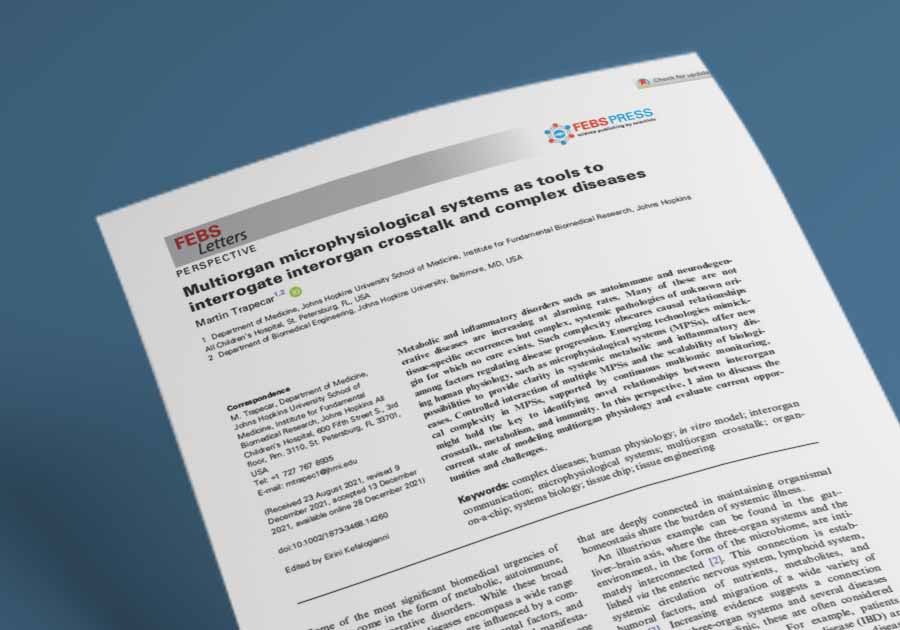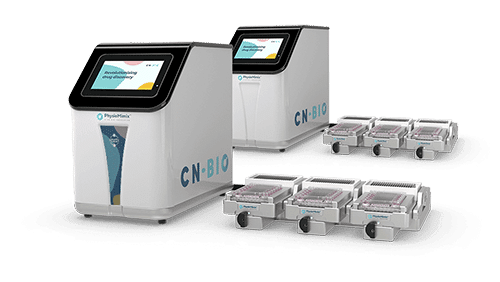Resource > Scientific publications >
Multiorgan microphysiological systems as tools to interrogate interorgan crosstalk and complex diseases
Filed under: ADME, DILI, Disease modeling, Drug absorption, Drug metabolism, and Safety toxicology

Trapecar, 2022
Metabolic and inflammatory disorders such as autoimmune and neurodegenerative diseases are increasing at alarming rates. Many of these are not tissue-specific occurrences but complex, systemic pathologies of unknown origin for which no cure exists. Such complexity obscures causal relationships among factors regulating disease progression. Emerging technologies mimicking human physiology, such as microphysiological systems (MPSs), offer new possibilities to provide clarity in systemic metabolic and inflammatory diseases. Controlled interaction of multiple MPSs and the scalability of biological complexity in MPSs, supported by continuous multiomic monitoring, might hold the key to identifying novel relationships between interorgan crosstalk, metabolism, and immunity. In this perspective, I aim to discuss the current state of modeling multiorgan physiology and evaluate current opportunities and challenges.


